
A Practical Guide to Laundry Pod Packaging: Materials, Protection, and Modern Packing Solutions
Introduction
Laundry pods have become one of the fastest-growing categories in the global household cleaning sector due to their convenience, high concentration, and precise dosing. Since each pod contains active detergents wrapped in a water-soluble film, the product is highly sensitive to moisture, pressure, and temperature. This makes packaging a critical factor in ensuring product stability, safety, and shelf appeal. Modern packaging systems now focus on preventing deformation, leakage, and aroma loss while supporting efficient production at scale.
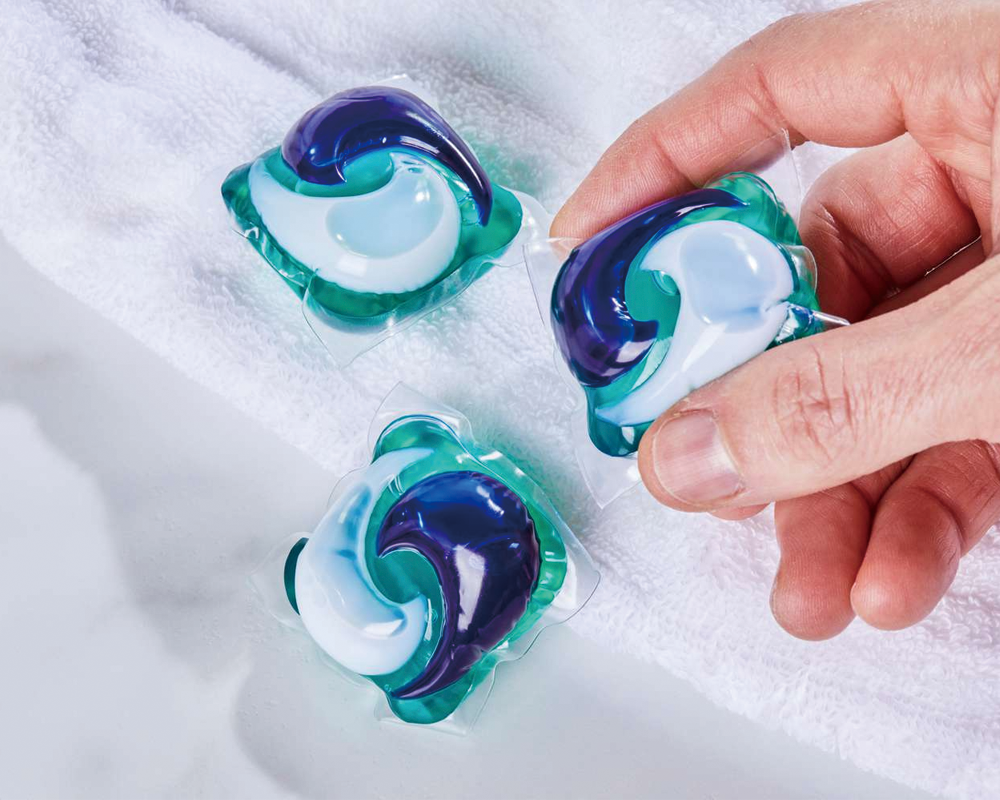
Why Laundry Pods Require Specialized Packaging
Laundry pods absorb moisture easily and can soften or deform when exposed to humid environments. They may also burst under excessive pressure during storage or transportation. For this reason, packaging materials need strong barrier properties, mechanical strength, and reliable sealing performance. The aromatic components inside the pods further require odor isolation to prevent fragrance loss or external contamination.
To balance protection and usability, manufacturers commonly choose multi-layer laminated pouches with controlled heat-sealing performance. These structures enhance moisture resistance, preserve fragrance, and provide a clean, easy-open consumer experience while maintaining product integrity throughout the supply chain.
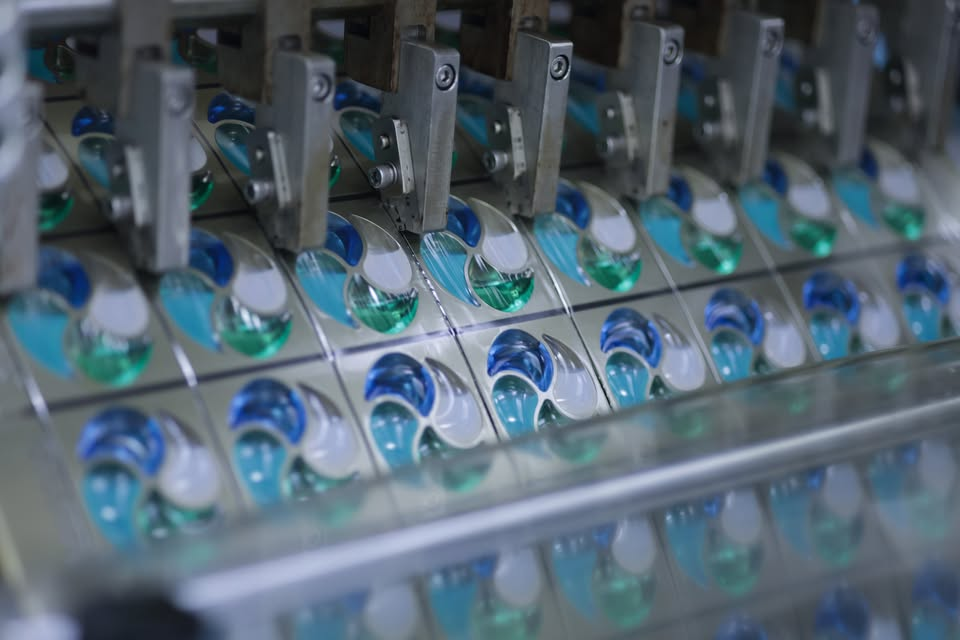
The Modern Packaging Workflow
The packaging process for laundry pods integrates precise weighing, gentle product handling, and stable sealing to maintain both accuracy and product shape. Pods are typically fed into the system manually or through an automatic feeding unit, then transferred into a multihead weigher for dosing. Because laundry pods are soft and sensitive to friction, the weighing buckets are often coated with Teflon, which minimizes sticking, reduces surface drag, and helps maintain weighing accuracy.
After dosing, the pods are discharged into a premade-pouch packaging machine, where the pouch is opened, filled, shaped, and sealed. The workflow emphasizes short exposure time, soft transitions, and controlled sealing temperature to keep the pack airtight and durable. Finished bags then move to inspection and case-packing stations, forming stable units for storage and distribution.
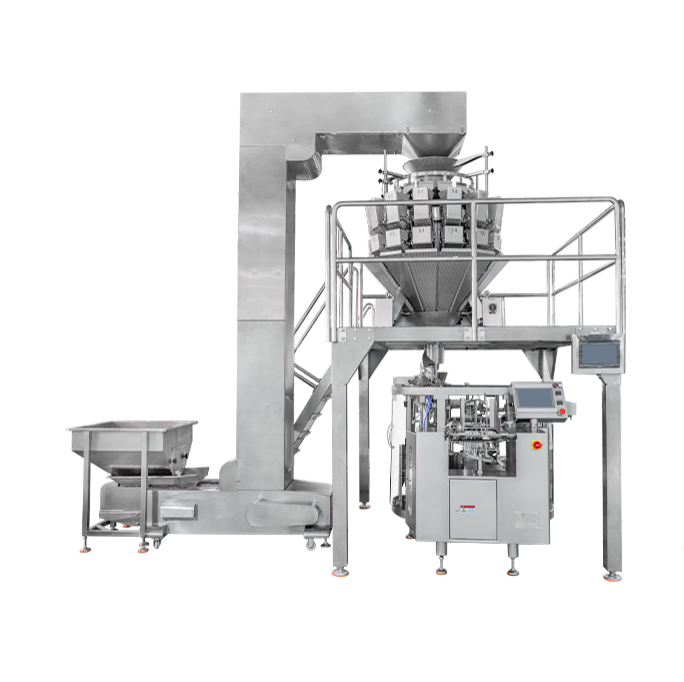
Packaging Materials and Performance
Packaging Type | Material Composition | Advantages | Typical Applications |
Stand-Up Pouch | PET/PE or PET/AL/PE laminations | Excellent moisture barrier, strong sealing, good shelf presentation | Retail household packs |
Child-Resistant Pouch | PET/AL/PE + child-proof zipper | High safety performance, compliant with US/EU regulations | Laundry products in family households |
Plastic Container / Jar | HDPE or PET rigid container + lid | Strong protection, stackable, prevents deformation, easy to scoop | Premium pods, moisture-sensitive SKUs, e-comme |
Carton Box Packaging | Paperboard / corrugated cardboard + inner liner | Eco-friendly, easy to print, excellent for branding, suitable for secondary protection | Retail outer boxes, e-commerce protective pack |
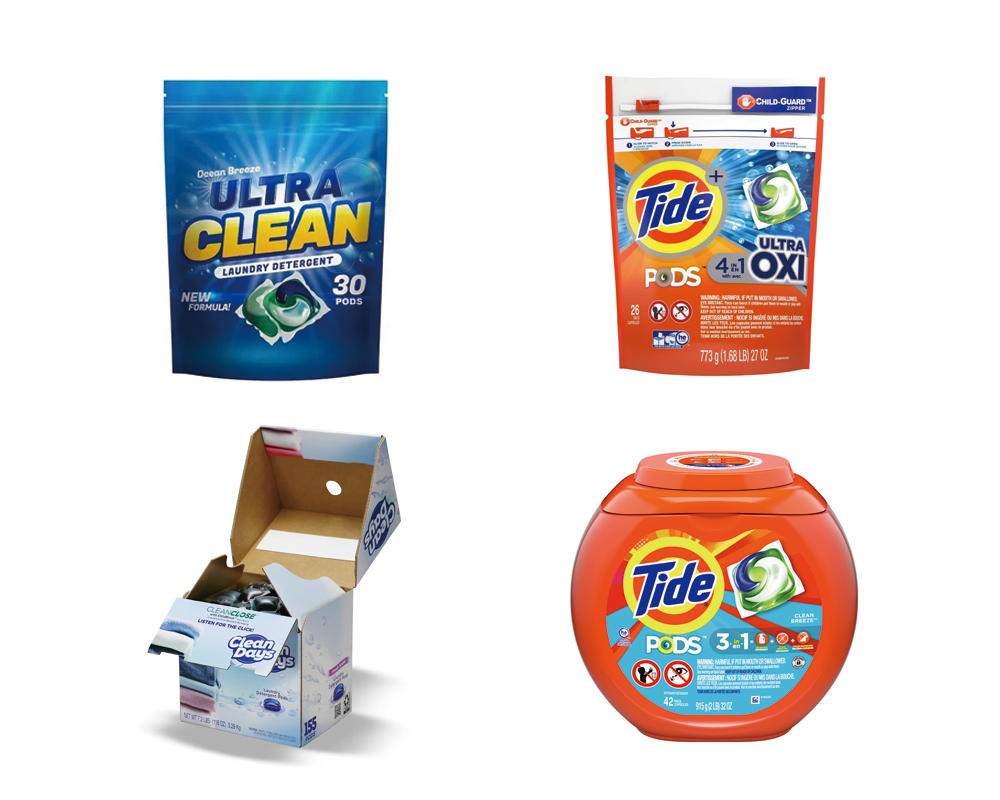
Automatic Packaging Solutions for Laundry Pods
The most widely used configuration for laundry pod production is the combination of a premade pouch machine with a Teflon-coated multihead weigher. This system adapts well to different pod shapes, formulas, and SKUs while protecting the product during handling.
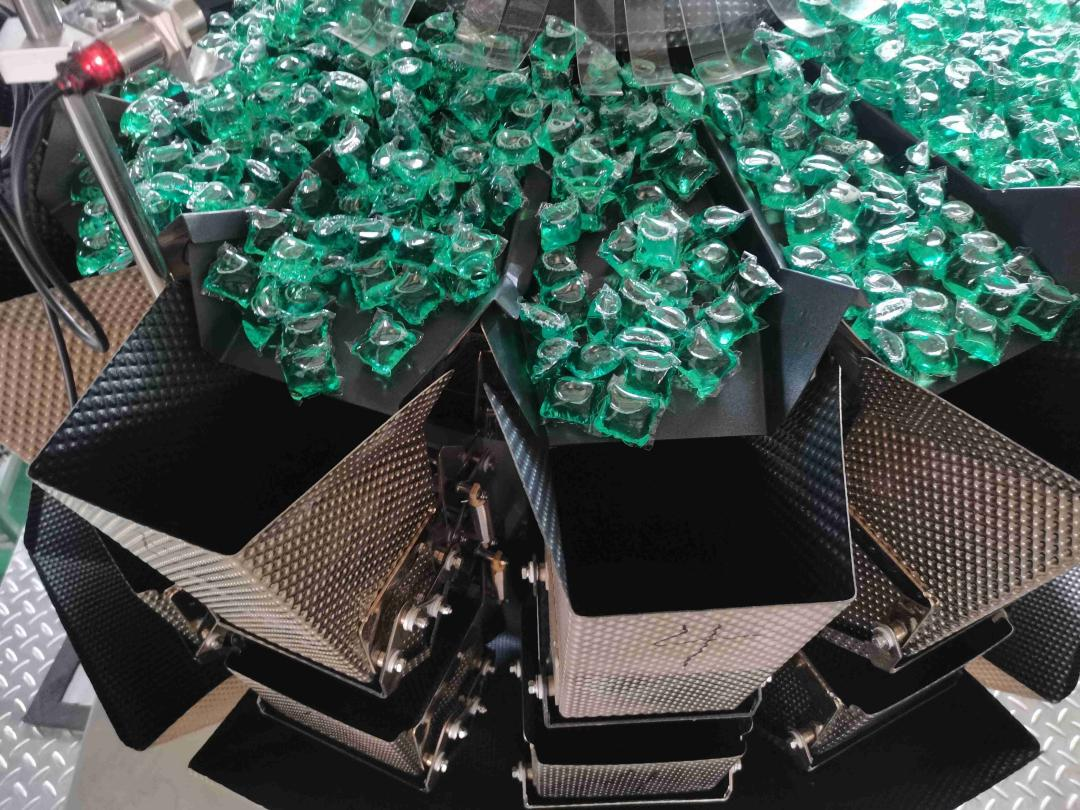
Advantages of the premade-pouch system:
Works with multiple bag styles: stand-up pouches, zipper bags, child-resistant bags
Gentle filling path to reduce pod deformation
Strong and consistent seal quality
Suitable for varied product counts and multi-fragrance SKUs
Role of the Teflon-coated multihead weigher:
Reduces product sticking
Improves dosing accuracy
Enhances speed with minimal product damage
Facilitates cleaning and hygiene control
Together, these systems support efficient, stable, and visually appealing laundry pod packaging suited for medium- and large-scale production environments.
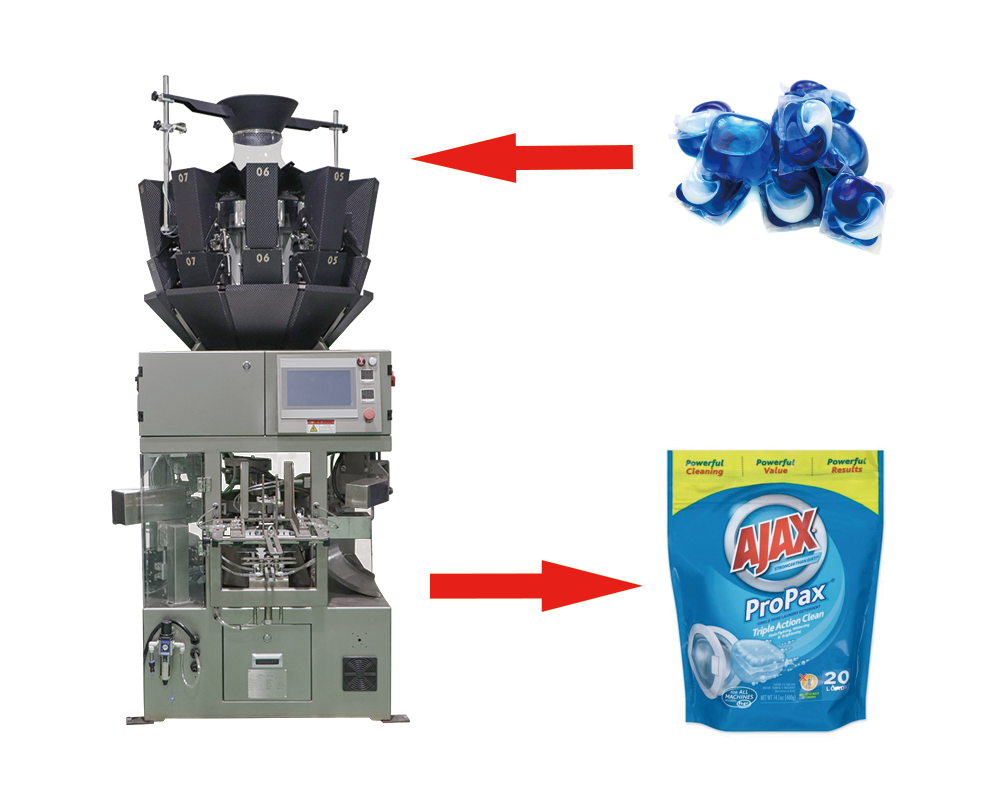
Quality, Safety, and Regulatory Considerations
Laundry pods require packaging that aligns with regional safety standards. Markets like the US and EU often require child-resistant closures, clear warning labels, and high-barrier materials. Asian markets emphasize fragrance retention and transport stability. Across all regions, consistent sealing, material safety, and traceability are key quality measures.
Sustainability is also becoming a major focus in this category. Many brands are now exploring recyclable films, lightweight pouch designs, energy-efficient sealing systems, and reduced-plastic structures, pushing the industry toward greener packaging solutions.
Get the latest price? We'll respond as soon as possible(within 12 hours)














